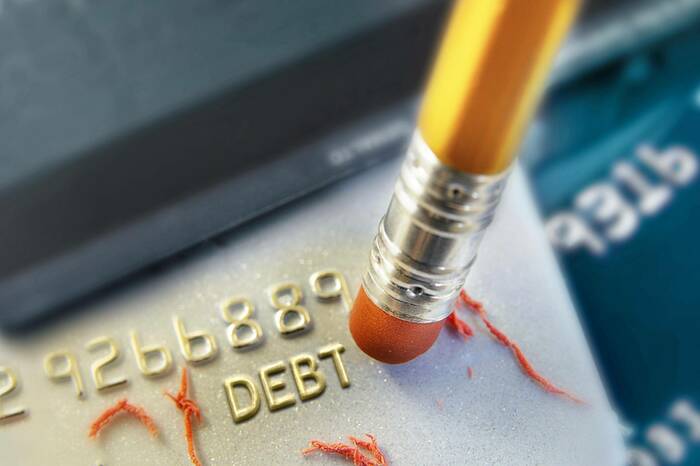
Having a credit card reaps several benefits. From its ability to protect your purchases, to reward schemes, and interest free lending. Nonetheless, credit card debt is something that can quickly accumulate if you fail to repay the agreed total sum each month, especially if you have several different credit cards to manage.
Although it may be the easier choice to just side-step your quickly accruing debt, the longer you do, the more difficult it will be for you to pay it off. So, why not take a look at some of the best ways to consolidate your credit card debt - making it easier, more manageable, and affordable to repay.
What Is Debt Consolidation?
If you are exhausted from repaying several credit card debt repayments each month, then maybe it’s time to consider debt consolidation. Debt consolidation is a good way to downsize your debt. It is a strategy that involves merging your multiple different debts into a single one.
Why Does This Help?
By consolidating your multiple debts into one, you are benefitting yourself in many ways:
More manageable as all of your debts are in one place
Lower overall interest
Avoid late repayment
Can improve your credit score

What Are The Top 3 Ways To Consolidate Your Credit Card Debt?
1. Personal Loans
Personal Loans are a form of unsecured loan that can be used to consolidate your debts into one monthly repayment at a fixed rate. Although it will not pay off your total debt, it will provide you with better terms than your previous debt, therefore, making it easier to repay.
How will it do this?
The purpose of debt consolidation is to get a loan that has a lower interest rate than your existing debt. By taking out a personal loan with a lower interest rate, your payments become more affordable and you ultimately shorten the amount of time you are in debt for. So, if you are struggling to meet your monthly repayment dates due to higher interest rates, then a personal loan is a fantastic option.
You should also note that late repayments can negatively impact your creditworthiness. Personal loans can prevent that from happening, and even improve your credit score at the same time.
2. 0% Balance Transfer Cards
0% balance transfer cards are one of the most popular options when it comes to consolidating credit card debt. This particular type of credit card charges 0 interest for a set promotional period, typically ranging from 12-18 months.
What’s more, they allow you to transfer your existing credit card balance from your other cards over to this one. This means that whilst you are paying off the debt, you are not accruing the interest. So, if you transfer and pay your debt during the promotional period, you can escape paying interest completely.
Martin Lewis, Mr Money Saving Expert himself, agrees that one of the easiest ways to pay off credit card debt is to transfer the debt balance onto a 0% balance transfer card. He advises, however, that you should always opt for the card that has the lowest fee in the time period you are required to repay, and make sure you are getting a guaranteed 0% card, alternatively to the ones that promote ‘up to 0%’.
Is there a catch?
No catch – only requirements.
You will need to have an excellent credit rating to qualify for the majority of these cards and may be required to pay a balance transfer fee.
3. Home Equity Loans
You can qualify for a home equity loan if you are a homeowner with equity in your home, on an adequate income. They were designed for individuals who want to use some or all of the equity in their home as a means to pay their outstanding debts.
How does it work?
Put simply, the lender will secure your loan and use your home as collateral.
Similar to personal loans, home equity loans also tend to have lower interest rates than other types of lending. This is primarily due to the fact that the lender uses your high value asset (your home) as security.
By taking out a home equity loan, you can spread your repayments over a longer settlement period, giving you the ability to effectively manage and take back control of your monthly debt repayments.
In spite of this, you must consider that your home is an extremely valuable asset so if you default on this loan, the lender is within their rights to repossess it.
Do I Need A Debt Management Plan?
If you have tried to consolidate your debt, but are still having little progress repaying it, then you may want to consider other alternatives, such as a debt management plan.
What Is A Debt Management Plan?
A debt management plan, also known as a DMP, is an alternative that can be offered to you through a debt management company, authorised by the FCA.
In effect, it is a contract that is agreed between you and your creditors to pay all of your debts. They are only available to those who can only afford a small amount of their debt each month, or individuals who are currently having financial problems but will be able to resume their repayments in a few months.
How Do They Work?
As a first step, you should contact a debt management company and set up a plan.
The DMP then calculates new monthly repayments. This will be calculated against different aspects of your current financial situation, such as your assets, debt amount, and your income.
Following this, the DMP will contact your creditors directly and ask them if they consent to the terms of the debt management plan, of which they can either accept or decline.
If this sounds like something you might need to look into, then find out more at gov.
Conclusion
Now you know how to consolidate your credit card debt, why not read Is It A Good Idea To Consolidate Debt With A Loan next?